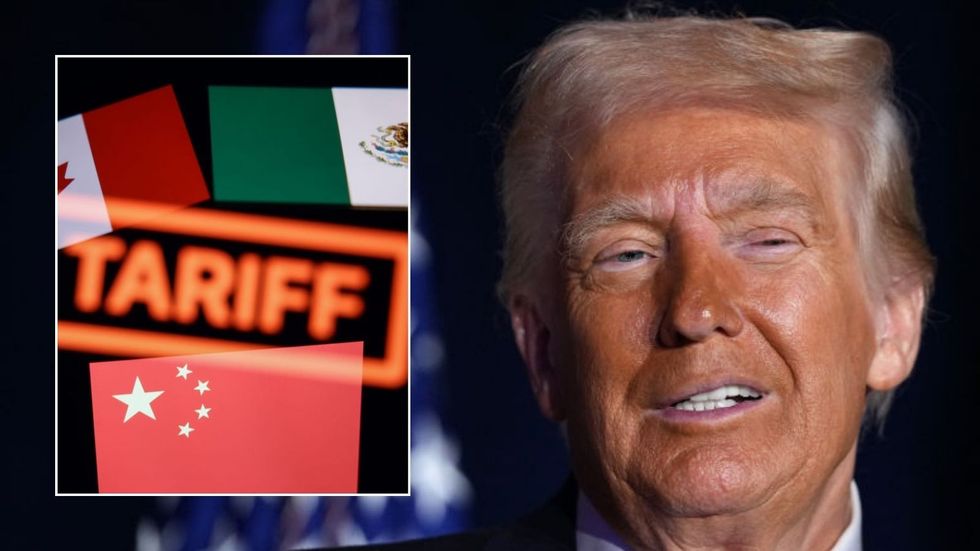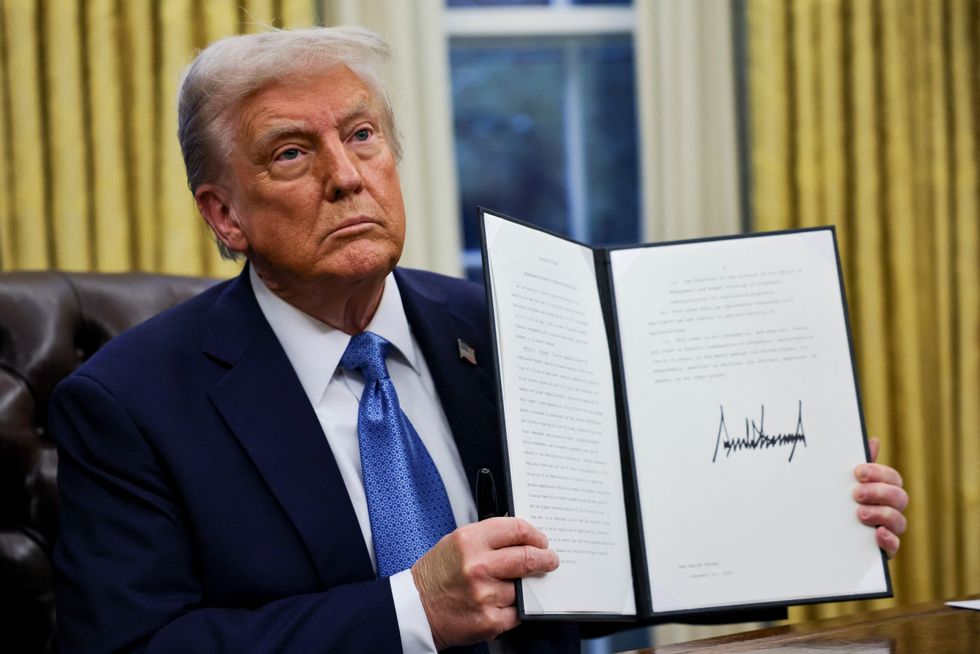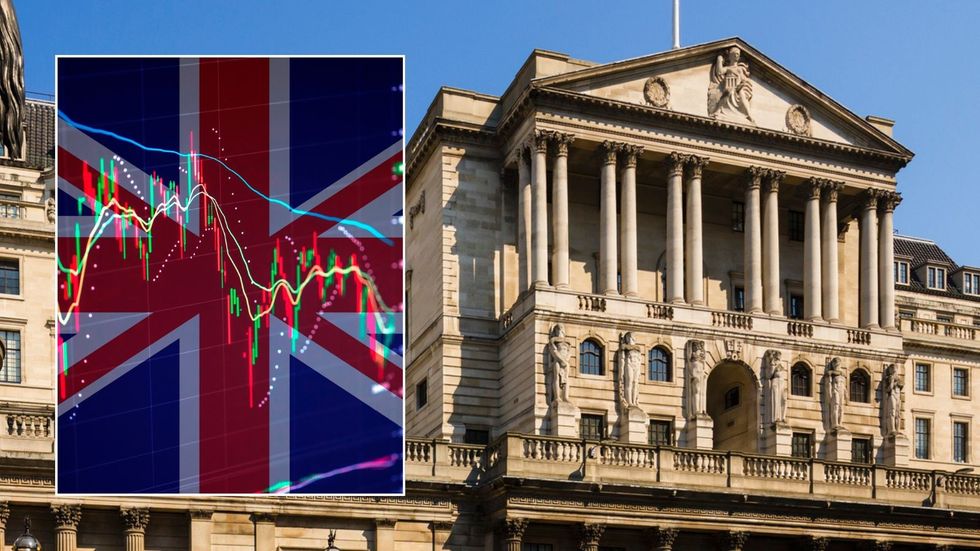Andrew Griffith says Labour is sending wrong message to US as trade war heats up
GB NEWS
Donald Trump is preparing to impose a sizable tariff on alumnium and steel imports in a move that is scaring investors
Don't Miss
Most Read
Trending on GB News
President Donald Trump's plan to impose new 25 per cent tariffs on all steel and aluminium imports into the United States has sent shockwaves through Asian markets this morning.
The taxes, set to be announced today, will be in addition to existing duties and have sparked immediate concerns about disruptions to global trade flows ahead of the proposed tariffs on Canada, Mexico and China next month.
Share prices of steelmakers across Asia declined in Monday trading as manufacturers grappled with the implications of the new measures. Canada, Brazil, Mexico, South Korea and Vietnam, the largest exporters of steel to the US, are expected to be significantly impacted by the new tariffs.
South Korea's industry ministry convened an emergency meeting with steelmakers in Seoul today to address the looming tariff threat after Trump made the announcement following his appearance at the SuperBowl.
Do you have a money story you’d like to share? Get in touch by emailing money@gbnews.uk.

Trump's plan of new tariffs have sent shockwaves through the Asian stock markets
GETTY
Hyundai Steel shares fell by as much as 2.9 per cent amid a broader decline in South Korean steel manufacturers. "We are concerned that the potential change would lead to export price hikes and reduction in the 70 per cent quota volumes," aHyundai Steel official said, referring to South Korea's annual duty-free steel quota.
An official from Dongkuk Steel acknowledged that "the negative impacts from the changes in tariffs would be unavoidable," noting the US remains a profitable market for the company.
In India, the metals index emerged as the country's top sectoral decliner, dropping approximately 2.5 per cent. Analysts warn the impact of these tariffs could be far-reaching, potentially affecting global economic activity and trade patterns.
"I suspect US manufacturers will have to wear higher prices as a result of these 25 per cent tariffs. Its import reliance is high, around 40 per cent to 45 per cent for aluminium and 12 per cent to 15 per cent for steel," Daniel Hynes, senior commodity strategist at ANZ, said.
China Futures analyst Chu Xinli predicted US demand would decline due to higher prices, with steel shipments being redirected to other regions like the EU and Asian countries.
LATEST DEVELOPMENTS:

Trump is continuing to pursue his tariff agenda
REUTERSIron ore futures fell on Monday as the tariff announcement triggered risk-off sentiment, despite signs of recovering demand in China. "One of the impacts of these tariffs is depressed global economic activity," noted Kyle Rodda, senior financial markets analyst at Capital.com.
In Britain, concerns are mounting about how these US tariffs could impact the UK economy. Last week, the Bank of England's Monetary Policy Committee (MPC) voted to slash the country's base rate from 4.75 per cent to 4.5 per cent.
Despite the cost of borrowing dropping, analysts are pricing in a rise in the rate of consumer price index (CPI) inflation to as high as 3.7 per cent by the end of the year.
Jerry Mulle, the UK managing director of Ohpen, warns of increased economic uncertainty in the coming months due to the pending US tariffs from the new administration.
"Over the coming weeks and months home buyers may well feel increased stress during what is already a challenging mortgage application process," says Mulle, noting that a third of UK consumers already find rising interest rates the most stressful part of mortgage applications.
Analysts have cited that the situation could particularly affect younger homebuyers, with 41 per cent of millennials reporting financial stress from interest rate fluctuations.

The Bank of England's MPC voted to cut interest rates last week
GETTYKevin Brown, a savings specialist at Scottish Friendly, added: "The MPC’s decision also reflected sliding UK business confidence in the wake of the October budget, and surveys suggesting employers are poised to lay off workers.
"The UK economy appears to be at or near stagnation, and in dire need of the boost lower interest rates could provide. There is also the uncertainty surrounding the looming trade war set in motion by US tariffs.
"For savers, it is likely to depress the interest rate they can expect on their cash savings. And markets are pricing in another two rate cuts for the remainder of the year.
"A way to shield yourself from the impact of shifts in interest rates is to build resilience in your day-to-day finances. That could mean having a financial cushion, invested prudently, that can help you weather external shocks."








